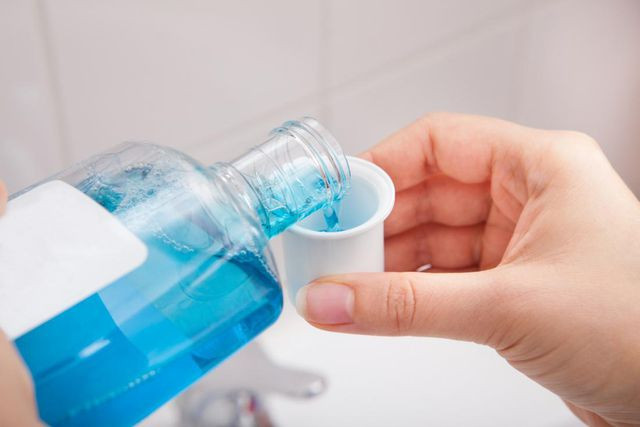Can mouthwash increase blood pressure?
Scientists know that bacteria in the gut influence health, but the link between oral bacteria and a range of health conditions is less clear.

New research finds that mouthwash can kill off “good” bacteria in the mouth, which could have important consequences for heart health.
For example, Medical News Today recently reported on a series of studies linking gum disease and the buildup of certain bacteria in the mouth to Alzheimer's disease, cardiovascular disease, and respiratory disease.
Another recent paper has shown how a specific type of bacteria in the mouth can accelerate the growth of colorectal cancer and make the disease more “aggressive.”
These studies focus on disease-causing bacteria, but, just like in the gut, our mouths also contain “friendly” bacteria, which are necessary for maintaining good health.
A good balance of these different types of bacteria in the mouth can prevent disease. Studies have found that when this balance is upset, it “contributes to oral and systemic diseases” as diverse as inflammatory bowel disease, Alzheimer’s, rheumatoid arthritis, obesity, atherosclerosis, and diabetes.
A balanced gut microbiome helps maintain good cardiovascular health by helping convert dietary nitrate into nitric oxide (NO) – a signaling molecule that helps maintain normal blood pressure.
Worryingly, however, new research shows that chlorhexidine, an antiseptic in mouthwash, can kill NO-producing bacteria, which in turn may increase systolic blood pressure.
Researchers used “16S rRNA gene sequencing and analysis” to examine whether using the antiseptic mouthwash chlorhexidine twice daily for 1 week altered the oral bacterial population and blood pressure in 26 healthy people.
After 1 week, the 26 study volunteers returned to their normal oral hygiene routine.
Researchers took saliva samples, tongue scrapings, and blood pressure measurements from participants at four different points during the study: at baseline and after 7, 10, and 14 days.
The authors reported that "twice-daily use of chlorhexidine was associated with a significant increase in systolic blood pressure after 1 week of use, and use resulted in an increase in nitrate-reducing bacteria on the tongue."
“Demonstrating that the presence of NO-producing bacteria in the oral cavity can help maintain normal blood pressure gives us another target to help the more than 100 million Americans who suffer from high blood pressure,” said the study’s lead author.
“Two out of three patients prescribed medication for high blood pressure do not have adequate blood pressure control, and this may explain why. None of the current drugs for treating high blood pressure target NO-producing bacteria.”
The researchers went on to explain the mechanism underlying these findings, saying that NO “is one of the most important signaling molecules produced in the human body.”
Because of the “ubiquitous” nature of this molecule, the systemic effects of oral bacteria may have other significant implications for human health beyond blood pressure maintenance.
“We know that we cannot be healthy without adequate amounts of NO circulating in our bodies. Yet the first thing more than 200 million Americans do each day is use an antiseptic mouthwash, which kills the ‘good bacteria’ that help produce NO. This once-thought-to-be-good habit turns out to be doing more harm than good,” the authors conclude.

